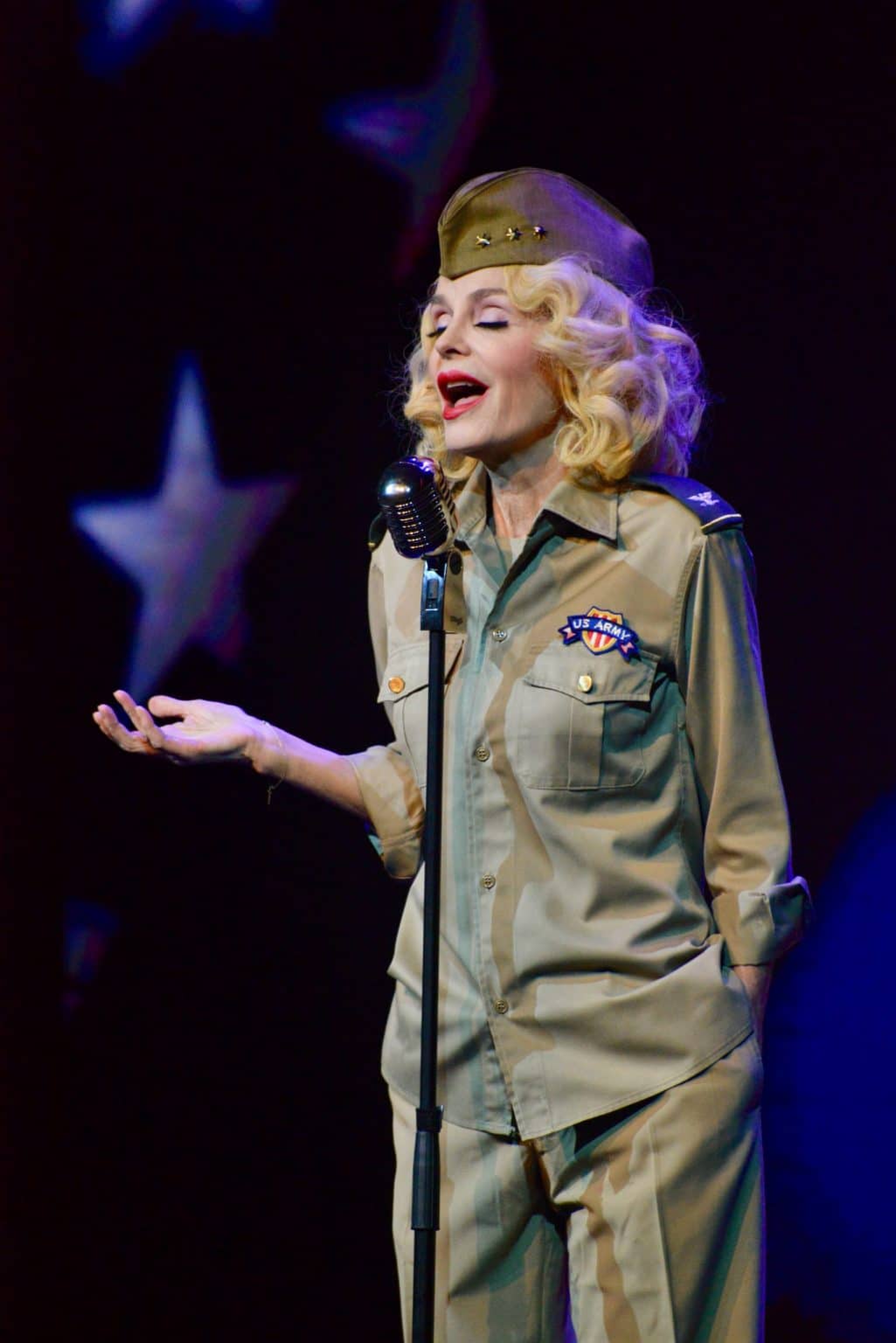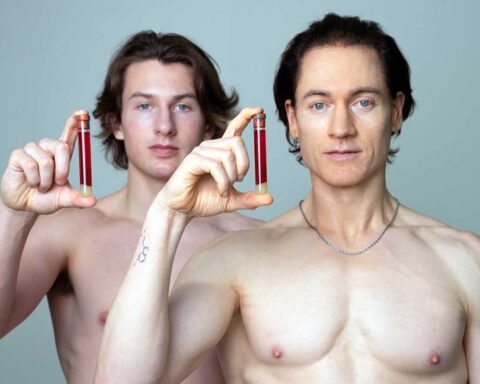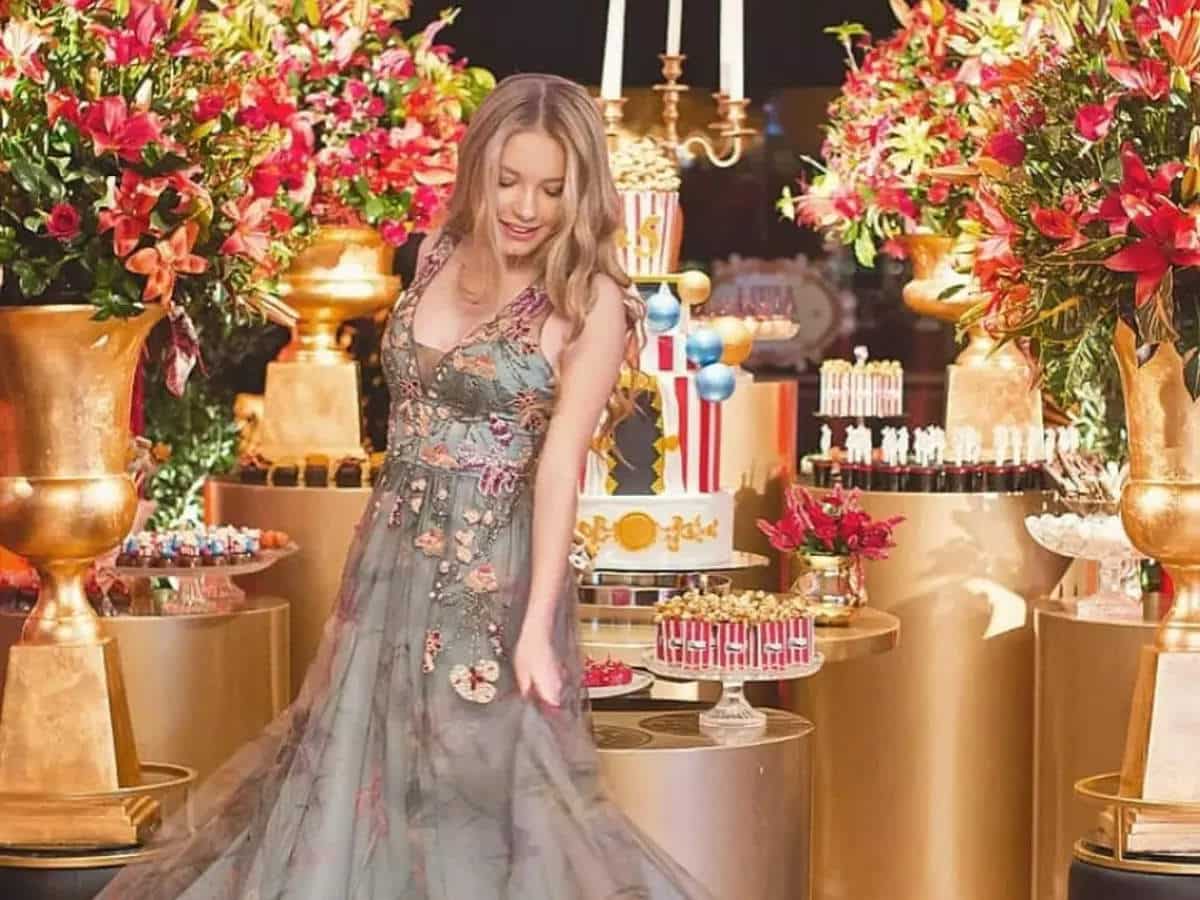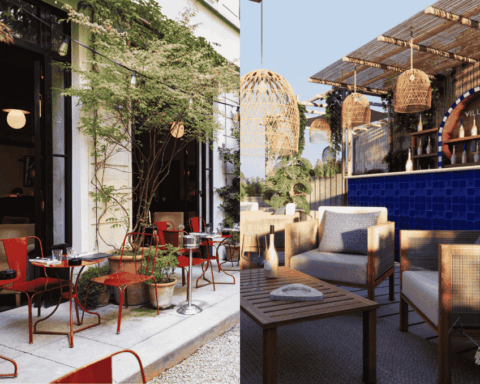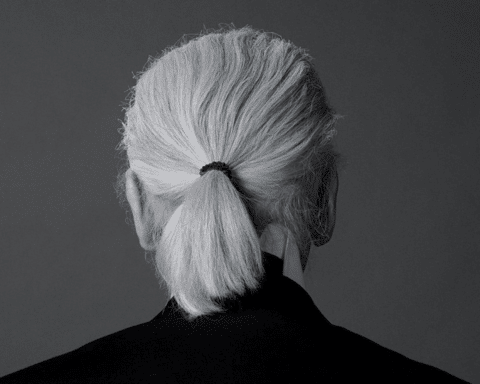Cyrielle Clair, former resident of the Comédie Française, brings Marlene Dietrich’s tumultuous life to life with emotion and panache at the Théâtre de la Tour Eiffel. From Berlin cabarets to her opposition to the Third Reich, the Blue Angel was committed to the Allies and to the France she loved so much.
It is at the Théâtre de la Tour Eiffel that we find Cyrielle Clair after her vibrant performance, this Friday evening. We hardly recognize her with her long flaming hair, so hypnotized by the Marlene she plays on stage. Phil de Rodrigue, illustrator, gives her a double portrait where the two women combine their destiny. The interpreter of “Marlene Dietrich, alone on stage” invites us to join a table of friends who are impatiently waiting for her in an Italian restaurant on Avenue Rapp. She talks to us about herself through the mirror that the music-hall star holds up to her. A meeting with a passionate and radiant actress.
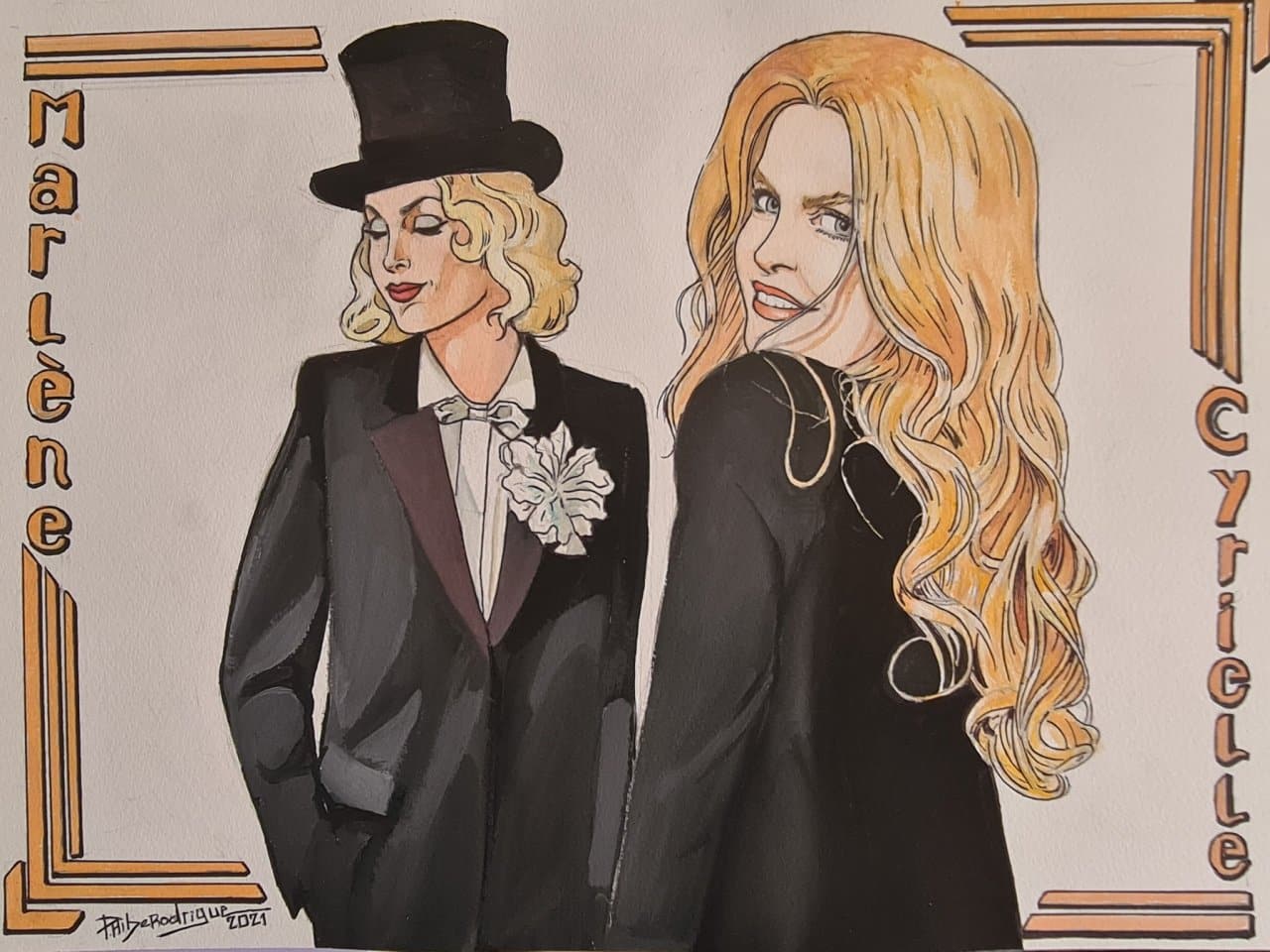
Was it your dream to slip into the skin of Marlene Dietrich ?
In fact, it was Pierre Cardin who suggested that I play this role. I said yes right away! He had known Marlene Dietrich very well and had given three performances in his theater. He had a lot of admiration and friendship for her. She loved the French language and culture and lived her last years cloistered in her Parisian apartment at 12 avenue Montaigne. Pierre is the producer and patron of this show. I played from September to October 2020, then there was the lockdown ; a difficult time for the artists. Then Pierre died on December 29, 2020. The show ended up resuming in the fall. He signed the ten costumes I wear on stage today. The tuxedo is my favorite costume !
The piece did not exist. Pierre Cardin had no doubt that you would be the author and director of this show ?
It was both wonderful and dizzying. I had to immerse myself in the life of this cinema legend, document myself, watch films, read, write. Everything is true, nothing is invented. I decided to tell her story from 1930 to 1973. In 1930, launched in The Blue Angel by Josef Von Sternberg, the first talking film of German cinema, she was spotted by the Paramount studio. She continued her career in Hollywood; Josef Von Sternberg will shape a myth. They shot seven films together, were lovers, but she was not in love with him. She played for the greatest directors such as Billy Wilder, Fritz Lang, Orson Welles… In 1973, she will perform one last time on stage at the Espace Cardin. I wanted to summarize 43 years of Marlene’s life in 1h15 !
It’s a huge job, a text full of subtleties where you interpret all the female and male characters.
It took me several years to meet this challenge. I designed the staging in several tableaux that correspond to key moments in Marlene’s life. Every sentence, every word is important. It was not easy to interpret the role of Hitler’s emissary with a German accent. I started singing to interpret seven songs of this great music-hall star, including Lilli Marlene, the anthem of the resistance against Nazism. Marlene sang it to the GIs, to General Patton’s troops in Europe, but also to German prisoners. She felt that these men had not chosen to go to war : this shows all her humanity.
What fascinates you about Marlene Dietrich’s character ?
She was 20 years old in the 1920s, the Roaring Twenties. In Berlin, she lived in an effervescent, permissive, creative atmosphere. She led a free life, dressed as a man. She lived little with Rudolf Sieber, her husband, who followed her into a very puritanical Hollywood. He was her best alibi. It was a free couple, she had many lovers. Decomplexed bisexual, her consumption bordered on gluttony.
How do you explain her insatiable need for partners ?
Her childhood was difficult. She lost her father when she was 5 years old, then her stepfather at 15 years old. He did not have time to adopt her. Her violin teacher deflowered her sordidly on the living room sofa. Did this trauma make her frigid ? This would explain why she collected so many men in her life. She had a beautiful love story with Jean Gabin who, like her, was fleeing Nazi Germany. He was the only one of her lovers to whom she gave hope of marriage. But she was unfaithful to him and he got tired of her.
This German woman, as free as she was liberated, courageously opposed the Nazi regime ?
Indeed, Hitler proposed her to be the muse of the Nazi cinema. She represented for him a great star and the perfect Aryan woman. She opposed a categorical “Nein”. Refusing to be instrumentalized by the Third Reich, she affirmed that she had “a mystical link with the Jewish people that goes beyond blood ties. These are her own words and it is very beautiful… Exiled to the United States with Jean-Pierre Aumont, she will be naturalized American. Hitler put a contract on her head.
In 1960, she came to sing in Berlin, her hometown. Was this a risky return ?
Indeed, even after the war, it was a courageous act on her part. She was badly received, booed, threatened with swastikas. On stage, she calmly explained that she loved Germany, her country, but not Nazi Germany, hence her departure for Hollywood. She expressed her great emotion to return to her native Berlin. She sang in German, French and English. It was a success with a standing ovation of 45 minutes.
Do you have anything in common with Marlene Dietrich ?
Like Marlene, I am a military daughter and I received a strict education. I had to do serious studies. So I got a master’s degree in economics at the Sorbonne to reassure my parents. But I had the spirit of an artist, I dreamed of a life as an acrobat. Incidentally, Marlene and I love chocolate. We are fans of Björn Borg and the French Open.
You have a much wiser life than the Blue Angel…
I have always separated my professional life from my personal life. I doubted myself. I did not want a director to choose me because I was his girlfriend. But I wanted to be retained for my qualities as an actress. That’s why I forbade myself from seeing directors even if I liked some of them. This led to me getting supporting roles rather than the lead. Later, I understood how much directors, like Truffaut or Lelouch for example, needed to be intimate with their actresses. In our profession, the work is done on the feeling, the intimate. Our instrument is our heart, our guts, a part of our soul. Of course, this has nothing to do with the #MeToo movement. We are talking about mutual consent.
In The Professional, you have an important role. Were you close to Jean-Paul Belmondo ?
We regularly had lunch together at the Café de l’Alma in small committee, often with his accomplice Charles Gérard. He was an incredibly kind man, smiling, who despite his health problems, transmitted his joy of living. At the Invalides, his coffin was raised, accompanied by the music of Ennio Morricone’s Professional. My heart was close to tears.
Practical informations :
« Marlene Dietrich, seule en scène »
At the Théâtre de la Tour Eiffel until December 12, 2021
4, square Rapp, Paris 7ème
Prices : from 10,50 to 35 euros
Tel : 01 40 67 77 77
Featured Photo : © Cyrielle Clair




